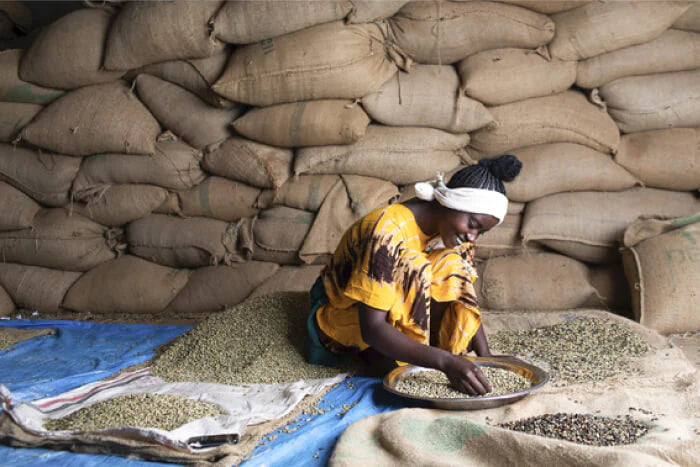Here is our answer: Fair and sustainable coffee grows in healthy soil and is farmed in harmony with nature, in conditions that are good for the growers, the pickers and their families. Many people who live and work on coffee farms face a host of challenges, such as the effects of climate change and fluctuating commodity prices. This is compounded by the insecurity that stems from unstable political systems, poor infrastructure and a lack of access to education and basic medical care. We want to help change this.
That’s why Tchibo is committed not just to growing coffee in an eco-friendly way, but also to improving working and living conditions and providing more educational opportunities locally. Coffee farming is a clear example of how economic, environmental and social considerations are all intertwined.
Our work in the coffee industry is based on a three-pronged approach: our own projects, regional partnerships and political debate. We are involved at a local level, but we are also working to promote political debate and cross- sector cooperation, as we cannot tackle complexity of these issues if we act in isolation.
Our core objective is this: We want to work closely with local communities to create sustainable regions where we can enjoy long-term cooperation in a fair and secure framework.


Leave a comment
This site is protected by hCaptcha and the hCaptcha Privacy Policy and Terms of Service apply.